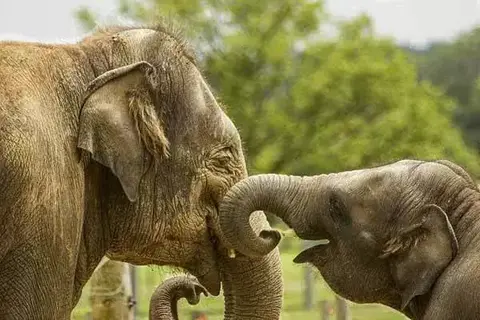What Do Donkeys Eat In The Wild?
Murphy ScottDonkeys do not have such striking signs, but the famous long ears and tail with a tassel on the end represent the donkey well enough. Besides, whoever still has doubts about whether a donkey or a horse is in front of him, can look at the animal’s hind legs. If there are no chestnuts on the inside, it is a donkey. A horse has chestnuts on all four legs. The chestnuts are rudiments, obviously of some kind of skin glands: rounded, hairless plaques of wrinkled, as if caked, skin. As for the ears, they are really long only on the African wild donkey, the ancestor of domestic donkeys. Its cry is also similar to the unvoiced roar of a domestic donkey. The Asian wild donkey has a different cry and shorter ears. African wild donkeys are larger than Asian donkeys (sometimes called gray donkeys and Asian donkeys are yellow donkeys).
What do donkeys eat in the wild and at home?
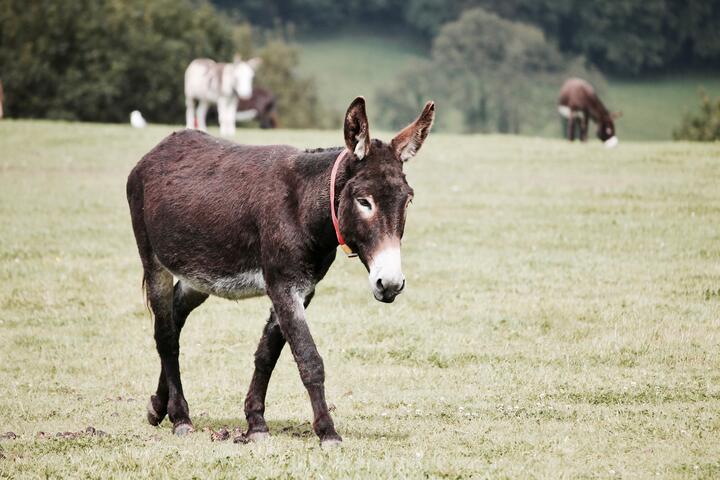 Photo by Leon Woods on pexels
Photo by Leon Woods on pexelsIt is widely believed that keeping a donkey is comparable to taking care of a horse. But there are significant differences. A donkey is more unassuming about cleanliness and does not require any special or special food, eating very little.
Donkeys can eat hay and straw, and their stomachs can even digest thorns. They can be fed grains: barley, oats, and other grains. Keeping them is not too expensive for owners.
Donkeys in the wild eat plant foods. They eat grass, various plants, and shrub leaves. Because they live in an arid climate and sparse vegetation, they often have to wander for long periods on sandy and rocky terrain in search of something edible. Donkeys can do without water for a long time.
To maintain health and performance, donkeys need vegetable low-calorie food rich in fiber. Donkeys graze during the day, consuming food in small portions. Starchy grains with high sugar content (corn, wheat, oats) are not suitable. If these foods are consumed, the animals become overweight and their health deteriorates.
Donkeys spend most of the daylight hours on pastures. But herbaceous plants in summer and hay in winter do not form the basis of the diet. The main foodstuff of domestic donkeys is straw. In the natural environment, animals eat grass, the bark of bushes, berries.
Older animals with worn teeth, sick and lactating donkeys prefer chaff. An excess of protein food leads to the death of the animal. It should not be forgotten that the ancestors of domesticated donkeys come from African arid countries.
The owners diversify the diet with vegetables and fruits. The amount of food offered should not exceed one handful at a time. Carrots, bananas, apples are added to the menu.
Prohibited foods:
•meat, fish;
•bread, dried bread;
•Confectionery, pastries;
•Cabbage of all varieties;
Wild donkeys are unpretentious about water – it is enough to come to the watering-place once in three days. A domestic donkey is given water daily and heated during the cold season.
What do donkeys eat in the wild? Donkeys diet
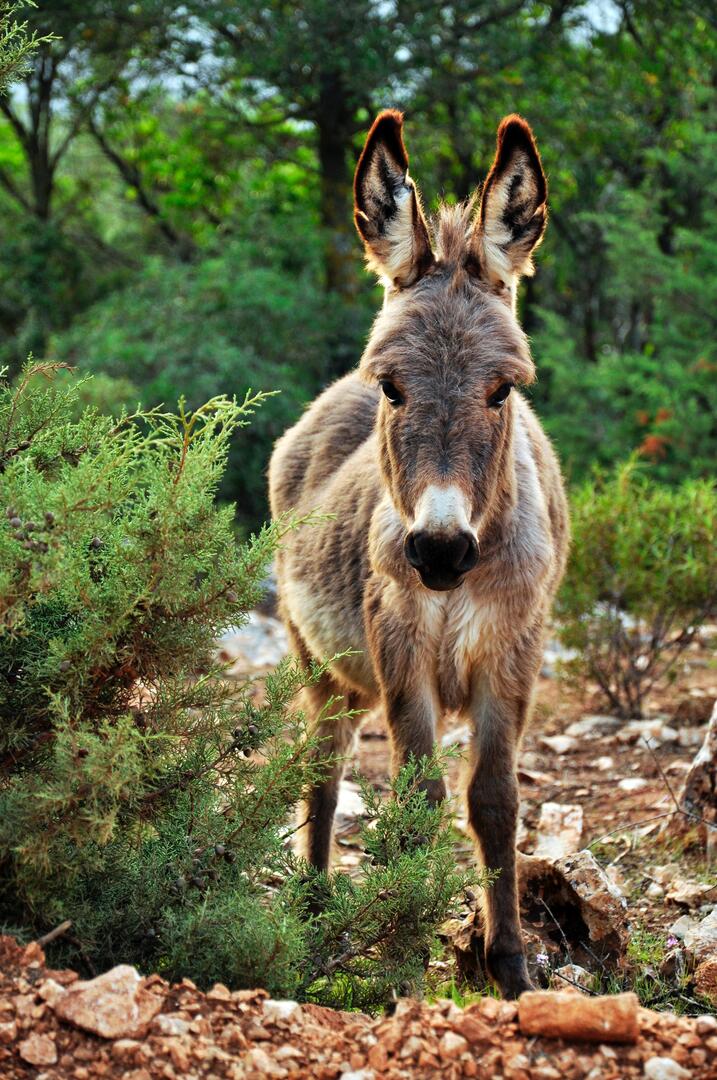 Photo by Nilina on pexels
Photo by Nilina on pexelsDonkeys are herbivores that eat a variety of plants, including grass and hay. When pastures are not lush and green, they can also eat straw, which can make up to 25% of the donkey’s diet. When vegetation is scarce, donkeys can also ingest meat. While donkeys can’t ingest meat, they can ingest a variety of other fruits and vegetables, such as citrus fruits, berries, and pumpkin.
Donkeys are difficult to digest vegetables that belong to the Brassica family, such as tomatoes and eggplant. They prefer a simple diet that is low in sugar and rich in fiber. In addition, donkeys should not be fed bread or processed foods, such as cornmeal. Instead, they should eat a combination of fresh fruits and vegetables, such as bananas and apples. As a rule, donkeys don’t like the taste of onions or garlic, so they don’t enjoy the same flavor.
Donkeys can also eat certain types of plants. While they can’t ingest corn, they can eat briar rose bark, which is high in fiber and protein. Similarly, donkeys can ingest carrots and cactus, and they can even kill coyotes! Donkeys are also fond of fruits, such as apples and cucumbers, which are high in water and fiber.
In terms of vegetables, donkeys can be given small amounts of fruit or vegetables daily. This will give them a more varied diet, and provide more variety for them. You can start by introducing them to a few small pieces of fresh fruit and vegetables as an addition to their regular food ration. Donkeys should not be fed anything with dairy products, which are toxic for donkeys. However, some donkeys may have a preference for iceberg lettuce or kale, as these contain plenty of vitamins and nutrients and are low in calories.
Donkeys should be fed 1.5 percent of their body weight each day, and they should not be starved. Forage is not as nutritious as hay or grass, so it is important to test the forage to ensure that it is rich in fiber and other nutrients. If forage is lacking in certain nutrients, it is best to supplement it with a forage balancer. This way, donkeys can avoid the potential for colic and become more active.
While donkeys do eat vegetables and fruit, they should avoid too many treats. Too much food can lead to colic, and you do not want your donkey to become agitated or aggressive. Aside from vegetables and fruits, donkeys can eat seasonal fruits and vegetables. If you are feeding them vegetables, make sure that you cut them into small pieces and serve them fresh. You can also add peppermint and apples to their diet.
Donkeys can eat seasonal fruit and vegetables. However, they should avoid too much food, as it may cause colic. Adding too much fruit to their diet can also cause digestive problems, including constipation and laminitis. If you don’t know what to feed your donkey, you can read more about the right nutrition for your donkey. It is also important to know that the donkeys’ digestion system is unique. They have a special digestive tract that makes it easy to break down food and absorb the maximum amount of nutrients from it.
Donkeys need a variety of nutrients. They are herbivores, but they also need a lot of roughage. Donkeys have evolved to eat more than grass, and they will happily eat a variety of forbs and grasses. If the forage supply is restricted, donkeys can become destructive, so providing a range of roughage is a must.
Donkeys should eat a natural forage-based diet, with plenty of fresh water and hay. In addition to a nutritious diet, donkeys should also receive plenty of exercises and live in a herd environment. Unlike humans, donkeys don’t eat meat. They can eat raw and cooked meat. A donkey’s digestive system requires a large amount of energy to be healthy.
- DogsTips For Traveling On The Road With Your Dog

- RodentsHow Often To Bathe Guinea PigBy Karla Miller
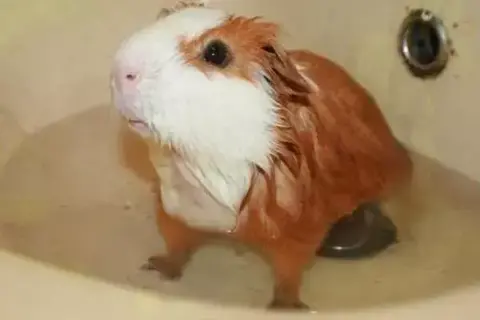
- DogsHeal Your Allergic Dog The Natural WayBy Lucas Torres

- BirdsWhat Do Owls Eat In The Wild And At Home?By Nolan Foster
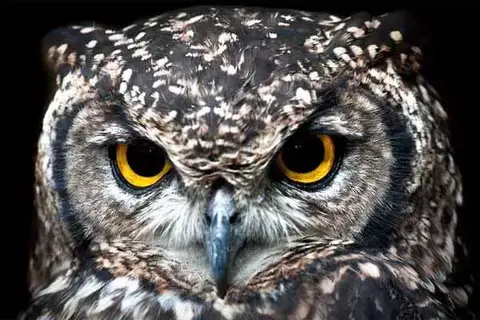
- Insects25 Interesting Facts About InsectsBy Evelyn Star
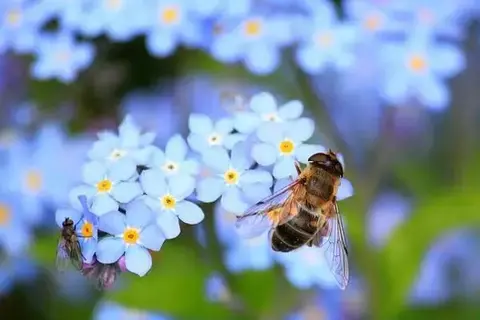
- Cats25 Interesting Facts About CatsBy Amelia B

- CatsWhich Cat Breed Lives The Longest?By Camilo Walker

- WildlifeInteresting Facts About HipposBy Amelia B
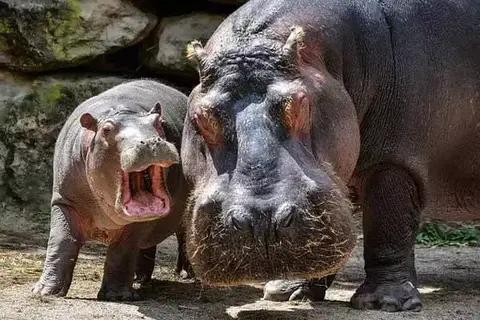
- DogsGerman Shepherd Dog Stealing FoodBy Evelyn Star
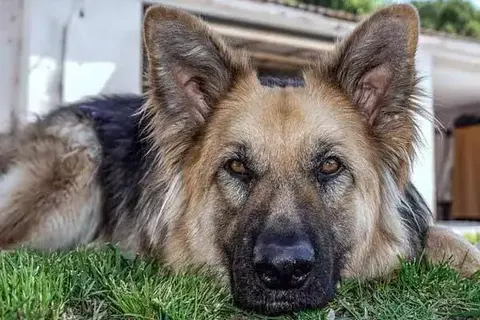
- WildlifeWhat Do Elephants Eat At The Zoo?By Charlotte Green
